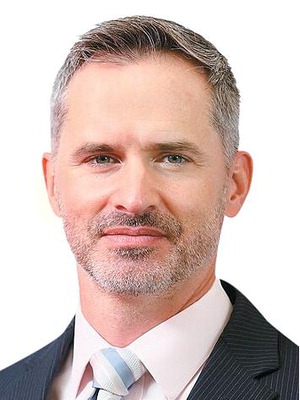September 20 is Youth Day. It is a day to reflect on how to better support the younger generation wh..

September 20 is Youth Day. It is a day to reflect on how to better support the younger generation who will lead the future. If there is a wish, our children are not just getting a good education, but growing up healthy, confident, and happy. Older generations, including myself, are responsible for helping children grow into full adults.
Since coming to Korea two years ago, my children have been attending international schools and participating in academic and physical education activities with Korean students of their age. What I felt the most was the passionate attitude of Korean elementary school students. Children, including math, sports, music, and theater, cultivate their talents with amazing concentration and develop their skills in various fields. The culture of working hard in various fields from childhood is a great advantage of Korean society.
But when you enter middle school, things change. In the face of the huge goal of college entrance exams, all energy is focused on studies, leaving behind the potential and talents that have been cultivated so far. The effort is certainly great, but at the same time, I wonder if children’s options are narrowing down to just one path: passing college.
Of course, the academic enthusiasm of Korean society deserves high, but I often wonder if it is necessary to develop creativity, resilience, and confidence as well as academic achievement.
These questions became deeper through my son. My eldest son was diagnosed with dyslexia while having difficulties in school. At first, the author and his wife were at a loss as to how to help the child. We explained to the child that the brain was just working a little differently from other people, and we gave examples of characters who overcame similar adversities. Rather than trying to force myself to improve my grades, I encouraged myself to find confidence by getting along with sports, music, and friends. The child learned on the basketball court and playing the trumpet on his own that if he works steadily, development and achievement follow. These experiences also helped in the classroom and eventually led to academic achievements. Now, on the way to the basketball court in the early morning of the weekend, I feel rewarded to see him happy and growing up.
Through this process, I realized the value of balance again. Test scores are important, but I think developing personality, creativity, and confidence together makes children’s lives stronger. This is because the foundation that leads to happiness and social contribution eventually comes from colorful childhood experiences.
This philosophy of balance is also an important value in Merck, where I work. Merck provides a family-friendly organizational culture such as a flexible work system and a fertility treatment support system so that 62,000 employees around the world can manage their work and family in harmony. This is because I believe that a healthy family is connected to the happiness of the whole society. We hope that our efforts to support parents to be compatible at work and at home will be an example for organizations to contribute to a healthier and more sustainable future society.
On the occasion of Youth Day, why don’t you spend time with your children, away from the fierce timetable for private education and entrance exam preparations. Even on weekends, they listen to the children’s stories and encourage their talents. That would be the responsibility and privilege that parents and society must bear together.
[Kristoff Harman, CEO of Merck Healthcare in Korea]Source link

